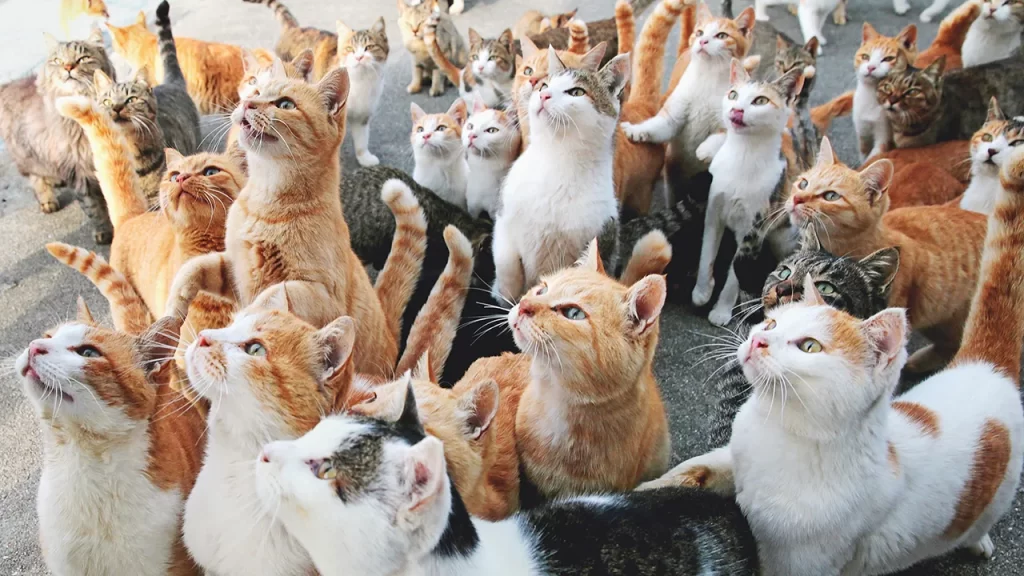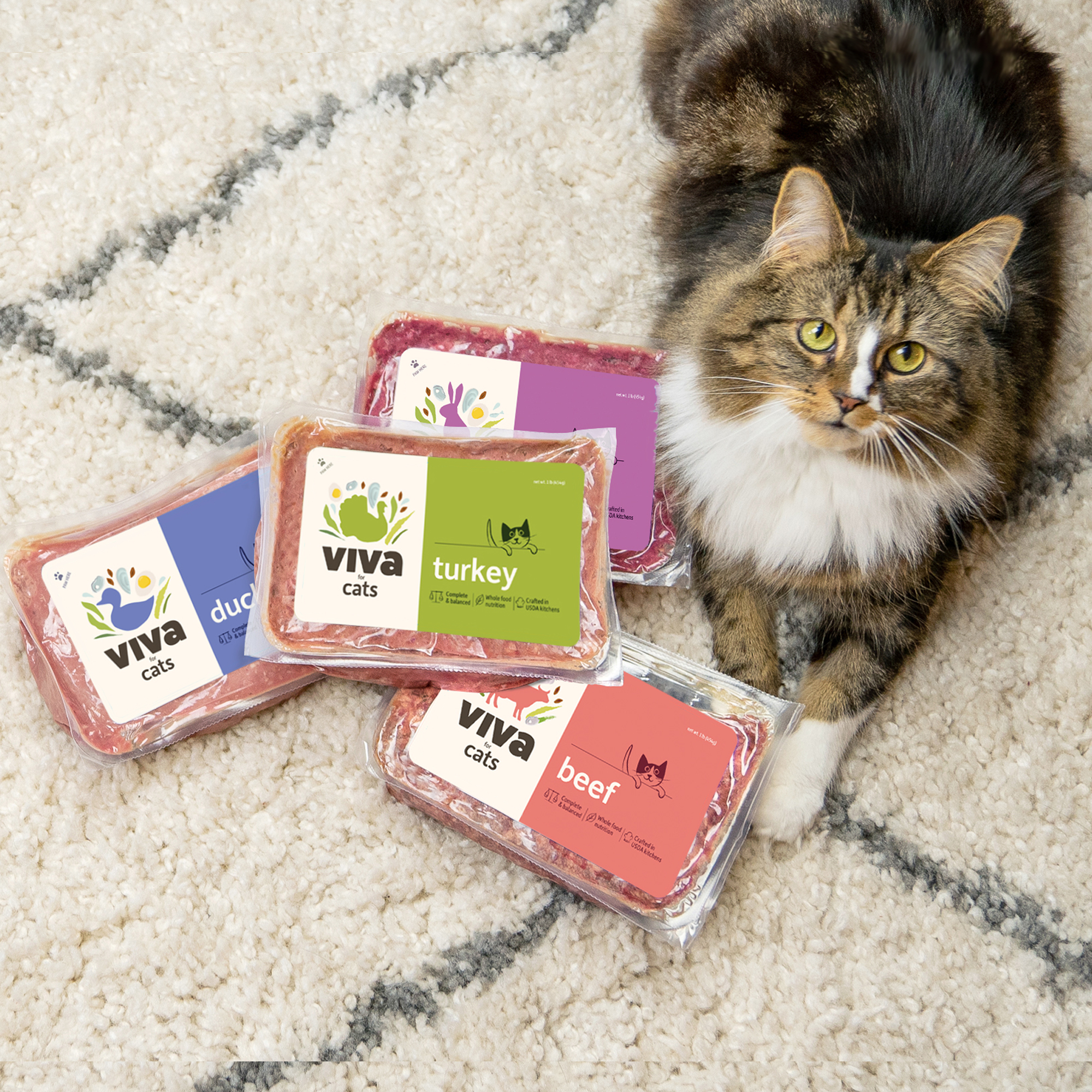In the vast world of feline companionship, finding the perfect addition to your family is a pursuit filled with excitement and joy. However, it’s crucial to tread carefully to ensure a smooth journey. In this guide, we’ll explore how to distinguish real breeders from scams and backyard breeders to make your kitten adoption a rewarding and responsible experience.
If you’re eager to dive deeper into the content and prefer a more dynamic experience, I’ve got you covered! The information discussed in the blog post is also available in video format on our YouTube channel. Feel free to check out the embedded video below for a visual journey. Watching the video provides an additional layer of insight, allowing you to absorb the details with both visual and auditory dimensions. The adorable kittens featured in the video are proudly from Lux Paw Cattery.

1. Let’s kick things off by acknowledging that reputable breeders, or the pros in this field, have something valuable: reputation. If a breeder has been in the game for a year or two, you can bet they’re leaving a digital footprint. Check them out on social media platforms – all legit breeders are pretty active there.
In fact, being present online is a big deal for them; it’s a key aspect of their marketing. If a so-called “breeder” claims to be off the grid when it comes to social profiles, that’s a red flag – start running!
Genuine breeders earn their stripes by focusing on the well-being of their furballs. So, when you’re on the hunt for a feline friend, do a bit of detective work. Dive into online realms using their names or cattery names. It’s like your own little homework project, but hey, it’s all for the love of finding the perfect kitty companion!
2. Health. Ethical breeders are champions when it comes to putting the health and well-being of their feline companions first. They go the extra mile by conducting thorough health screenings and providing detailed documentation covering vaccinations, deworming, and relevant medical history.
Now, it’s important to approach this information with a balanced perspective. While you definitely want to ensure your future furry friend is coming from a healthy background, it’s advisable not to go all “detective mode” on the breeder. Bombarding them with demands for every piece of paperwork might not sit well – in fact, it’s often a red flag that can lead to being banned or blocked.
Here’s the scoop: Be reasonable and respect their privacy. A trustworthy breeder should have some basic genetic screenings for the parents, knowledge of blood types, and awareness of vaccination schedules. When it comes to bringing your bundle of joy home, kittens ideally should be at least 12-16 weeks old. At this point, they’re fully vaccinated, spayed or neutered, and their immune system is robust enough for the outside world without their feline and “human mom.”
Speaking of vaccines, by 16 weeks, your fluffball should have received three vaccines and a rabies shot. It’s well within your rights to ask for these details unless, of course, you’re against vaccines – everyone has their beliefs. A registration slip for your kitten is non-negotiable. If it’s not in the package, consider it a red alert. In that case, you might be better off saving a life by adopting from a shelter.
3. Let’s talk about something crucial: cages. In the USA, it’s not uncommon for breeders, especially those managing larger breeding programs, to use cages for practical reasons. I won’t pass judgment on this practice because, truth be told, it’s often a necessary part of running a breeding operation efficiently. However, when it comes to your future feline companion, there’s a line.
Kittens are like little explorers, and they need the freedom to roam, discover, and learn from their surroundings. They should be raised free-range, soaking up the wonders of their environment. Similarly, adult cats need space to stretch their legs, run around, and get that essential exercise.

Now, here’s the deal-breaker for me – if I stumble upon any kind of caging on a breeder’s profile, I’d think twice about recommending them. Why? Because it raises a red flag. Caging, especially if it’s prominent in a breeder’s setup, can indicate priorities that lean towards convenience and financial considerations rather than the well-being and health of the animals.
In my book, it’s all about balance. Practicality is one thing, but not at the expense of the furry residents’ happiness and health. So, if you’re scrolling through a breeder’s profile and come across a surplus of cages, it might be worth reconsidering. After all, your future feline friend deserves a start in life that’s as close to carefree as possible.
4. Let’s dive into the importance of breed-specific knowledge when it comes to selecting a reputable breeder.
A trustworthy breeder is like a walking encyclopedia when it comes to the specific breed they are dedicated to. They should be able to answer your questions about health, breed characteristics, potential concerns, and more. If you find yourself in a conversation with someone who’s evading your inquiries or seems unsure about crucial aspects of the breed, consider it a flashing warning sign.
Here’s the scoop: when you’re dealing with a reputable breeder, it’s like talking to a passionate expert. They should be able to provide insights, share anecdotes, and address any concerns you may have about the breed. If, on the other hand, you’re met with vague responses or a sense that they’re just skirting around your questions, it’s time to hit the brakes.
In the world of cat breeding, knowledge is power. A breeder who knows their stuff is not only a sign of professionalism but also a key indicator that they genuinely care about the well-being and quality of the cats they produce. So, if you ever get the feeling that you’re dealing with a spammer or someone who’s just in it for the business without a deep understanding of the breed, take a step back and consider your options. Your future feline companion deserves the expertise and dedication that a knowledgeable breeder brings to the table.
5. Addressing the spaying/neutering aspect is crucial when discussing responsible breeding practices. Let’s delve into why many reputable breeders opt for spaying/neutering before letting kittens go home.

Professional breeders often have a well-drafted contract in place, outlining the requirement for the client to spay/neuter the kitten by a specific age. This not only serves to maintain the breeder’s bloodlines but also acts as a safeguard against potential misuse or neglect by irresponsible owners.
However, an increasing number of responsible breeders are leaning towards spaying/neutering kittens before they leave for their new homes. Why? Well, let me break it down:
- Protection of Bloodlines:
- By ensuring that kittens are spayed/neutered before leaving, breeders are taking a proactive step to protect the integrity of their bloodlines. This prevents unscrupulous individuals from taking advantage of the breeder’s hard work.
- Health Considerations:
- Unfixed animals can face various health concerns, some of which can be severe or even fatal. Spaying/neutering helps mitigate these health risks, ensuring that the kitten starts its new life in optimum health.
- Preventing Backyard Breeding:
- Professional breeders are committed to minimizing the prevalence of backyard breeders or those engaging in “one-time for health” breeding practices. By spaying/neutering before the kitten goes home, breeders actively discourage clients from unintentionally contributing to such practices.
- Avoiding Client Uncertainty:
- Some clients may feel conflicted or hesitant about spaying/neutering due to personal beliefs or practices. By taking care of this aspect before the kitten goes home, breeders eliminate potential discomfort or indecision on the part of the new owner.
In essence, this practice is a proactive measure by responsible breeders to ensure the ongoing well-being of the kittens, protect their breeding programs, and contribute to the overall responsible and ethical breeding community. It’s not just about the here and now; it’s a strategic move for the long-term welfare of the feline companions they’ve worked so hard to produce.
6. The price tag. If you stumble upon a website with unbelievably low prices, don’t be quick to whip out your wallet and reserve your spot. Chances are, you might just be covering a spammer’s water bill.
Professional breeders put a lot of thought into pricing their kittens. It’s not just about the cost of the kitten; it’s a culmination of various factors, including the breeder’s expertise and the extensive care and commitment they’ve invested in their breeding program over the years.
To put it in perspective, consider shopping for a quality bar of soap. Would you trust a brand-new company or one that’s been a stalwart in the market for decades? The price often reflects the reputation, experience, and quality associated with the product.

So, when it comes to kittens, beware of those jaw-dropping $500 deals from backyard breeders or shady websites where your purchased kitten might just vanish into thin air. It’s worth the extra effort to save up, do your homework, and make a smart investment. After all, veterinary services in the USA can be quite the expense, and when your fluffy friend falls ill, the bills can pile up quickly.
Don’t be fooled by the allure of a seemingly good deal. Be smart, take your time, and invest in a feline companion from a reputable breeder who values the well-being of their cats and has the experience to ensure you’re getting a healthy and happy addition to your family. It’s not just about the price; it’s about the value, care, and trust that come with a responsible and professional breeder.
7. The contract. If you’re considering buying a kitten without a contract, brace yourself for potential headaches. Without a legal agreement in place, you might find yourself stuck with a sick kitten and no recourse to recover your funds. Unfortunately, for many, this scenario often leads to the heart-wrenching decision of dumping a sick cat at a shelter.

So, before diving into the excitement of getting a new feline friend, it’s essential to think ahead. What if the kitten falls ill, or even worse, what if it passes away? Does the contract cover these situations? It’s crucial that the contract comprehensively addresses every possible scenario and is signed by both parties.
If you’re handed a kitten without a contract, it’s like playing a risky game with your hard-earned money. A robust contract should not only protect the breeder but also ensure that you, as the buyer, have legal safeguards in case of unforeseen circumstances.
Here are some key points to look for in a contract:
- Health Guarantees:
- Does the contract outline what happens if the kitten gets sick(genetically) shortly after purchase? A responsible breeder should have clear terms regarding health guarantees and potential remedies.
- Payment Receipts:
- Ensure you have receipts for your payments. This not only serves as proof of transaction but is also crucial for any future discussions or disputes.
- Responsibilities of Both Parties:
- The contract should delineate the responsibilities of both the buyer and the breeder. This includes care expectations, vaccination schedules, and any other agreements.
- Legal Recourse:
- What legal recourse do you have if something goes wrong? A well-crafted contract should provide a legal framework for dispute resolution.
Remember, a contract is not just a formality; it’s your safety net in the unpredictable world of pet ownership. So, don’t gamble with your decisions—insist on a comprehensive contract with clear terms and protections for both parties. Your future feline friend deserves the security that comes with responsible breeding practices.
8. Screening question. Any breeder who genuinely cares about the well-being of their kittens will want to know about you and your living situation before letting one of their precious feline companions go to a new home.
Here are some sample questions a responsible breeder might ask, and it’s crucial to answer them honestly if you’re truly committed to providing a healthy and caring environment for your new purebred kitten:

- Cat Allergies:
- Do you or anyone in your household have cat allergies? This is important to ensure that the kitten is going to a home where everyone can coexist comfortably.
- Time Commitment:
- How many hours a day can you spend with the cat? Cats are social creatures, and their well-being depends on interaction and companionship.
- Work Schedule:
- What is your work schedule like? This helps the breeder gauge if the kitten will be left alone for extended periods and if that aligns with the breed’s temperament.
- Family and Other Pets:
- Do you have any children or other pets? This is essential for understanding the dynamics of the new home and how the kitten will adjust.
- Living Environment:
- Can you describe your living environment? A responsible breeder wants to ensure the kitten is going to a clean, safe, and healthy home.
- Previous Pet Experience:
- Have you owned a cat before? This helps the breeder tailor advice and support to your level of experience.
If you encounter a place that seems solely focused on payments and getting the cat out the door without asking these types of questions, consider it a red flag. Responsible breeders are invested in the lifelong well-being of their kittens and want to ensure they are placed in homes where they will thrive. So, if you’re met with a breeder who doesn’t seem interested in your lifestyle and ability to care for the cat, it’s a clear signal to reconsider your choice. Run towards a breeder who prioritizes the health and happiness of their feline companions.
9. Verifying the legitimacy of a breeder’s address. Indeed, it’s not common practice for reputable breeders to hide their location, but unfortunately, some scam websites may do so. Verifying the provided address is a smart and straightforward step that many potential pet owners overlook.
Here’s a breakdown of the process:
- Google Search:
- Copy and paste the provided address into Google Maps to get a visual representation of the location. This can reveal if the address corresponds to a gas station, a public store, an empty house, or any other suspicious setting.
- Ownership Details:
- Dig deeper by checking who owns the house at the given address. This information is often publicly available, providing insight into whether the location is legitimate or questionable.
- Business Connections:
- Investigate if any businesses are associated with the address. Some scam websites may use fake addresses, and this can be cross-verified with local business directories.
- State Business Records:
- Check the state’s business records or registration database to see if any breeding-related businesses are registered at the provided address.
- Local Business Websites:
- Explore local business websites in the state of the given address. Look for any company names related to breeding or pet services based on that location.
By following these simple steps, potential pet owners can uncover valuable information about the legitimacy of a breeder. Reputable breeders are usually transparent about their location, and they want potential owners to feel confident about where their future pet is coming from. If a breeder’s address raises suspicions or if it seems inconsistent with their claims, it’s a clear signal to proceed with caution and consider other options. The safety and well-being of the pet, as well as your own peace of mind, should always be top priorities.
10. FaceTime or video interaction with the breeder. In the age of technology, a responsible breeder should be open to this kind of virtual meeting. It’s not just about seeing the kitten; it’s an opportunity to witness their interactions with siblings and older cats, ask questions, and generally get a feel for the environment they’re being raised in.

Here’s why FaceTime is so important:
- Transparency:
- FaceTime provides transparency. It allows you to see the living conditions of the kitten, the breeder’s setup, and ensures that what you see in pictures aligns with reality.
- Kitten Interaction:
- Seeing the kitten in action on FaceTime allows you to observe its behavior, social interactions, and overall health. It’s a more dynamic view than static images.
- Q&A Session:
- FaceTime gives you the chance for a real-time question and answer session. You can ask about the kitten’s routine, health, and any other concerns you might have.
- Build Trust:
- FaceTime builds trust. A breeder willing to show you their operation via video call demonstrates a commitment to transparency and openness.
While FaceTime is an excellent tool for ensuring a level of trust and transparency, it’s essential to remember that it doesn’t guarantee the health of the kitten. It should be part of a broader process that includes researching the breeder’s reputation, asking the right questions, and considering all the other points mentioned above.
These are the ten crucial points to keep in mind when selecting a breeder to partner with. Please take these considerations seriously, and I hope this article hasn’t been tedious to read. However, addressing these factors is paramount in ensuring the well-being of your future feline companion and making a responsible and informed decision. If you have any questions or need further guidance, feel free to reach out. Choosing a breeder wisely is a significant step toward providing a loving and healthy home for your new furry friend.
with love, Luxury Kittens USA.



